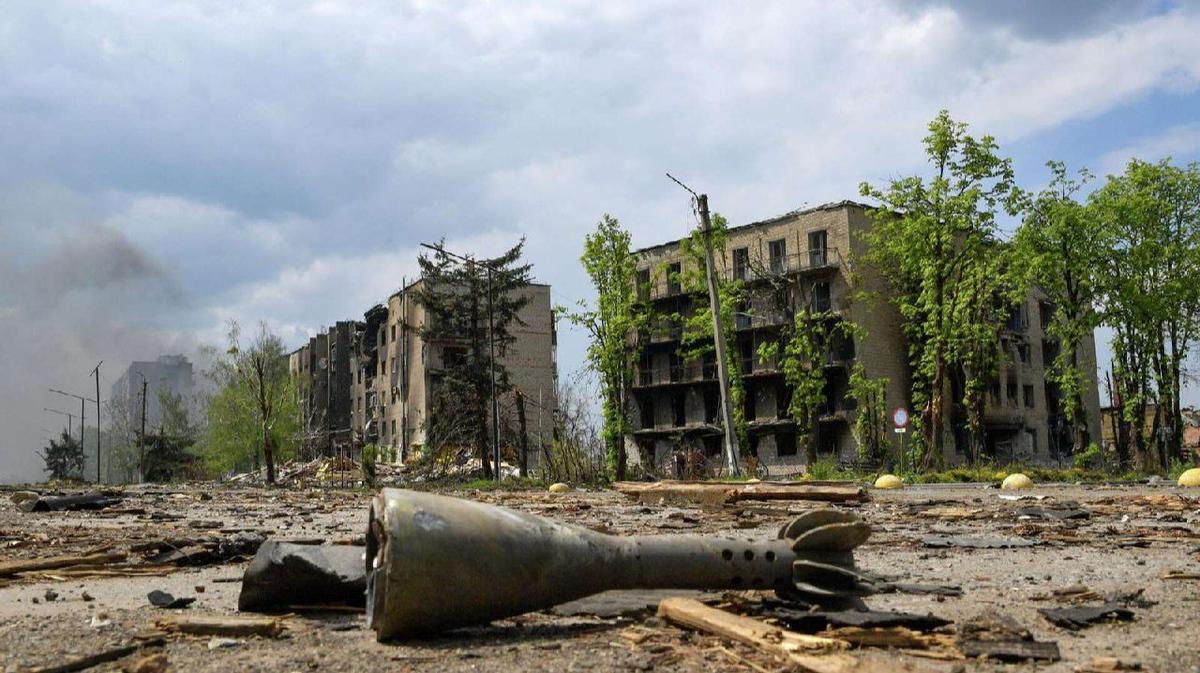"I still can't understand who had a bad life there? Everyone had salaries, pensions, and chain stores kept opening every other month. The city had good roads, new tiles, decorative plants, and modern street lights.”
“What have they ‘liberated’ Popasna from?! From a stable and prosperous life? From housing, property, personal transport, everything…”
"The thing I liked about this town, I guess, was that it was my hometown. You know almost every corner, which you can't help but like. It's cosy, clean — community services made sure to keep the streets neat and tidy. The parks were upgraded, they opened a new fountain, there was a beach on the lake [in one of the parks] — umbrellas, changing rooms, barbecue areas, the whole nine yards.”
These are the words locals used to describe Popasna, a small town in Ukraine's Luhansk region that was occupied by the self-proclaimed “LPR” in May this year. Fighting for Popasna — with an area of just 11 square miles and a population of 20,000 — lasted more than two months, resulting in almost complete destruction of the town. Last week, Leonid Pasechnik, head of the “LPR,” said that it was unlikely that Popasna would be rebuilt after the war. “There's not much point,” groused the quasi-head of the quasi-republic. According to Pasechnik, 96% of the buildings were damaged during the fighting.
Out of the 20,000 residents in Popasna, a maximum of 500 remain, according to the city’s Ukrainian administration. For the most part, these are citizens or those who in Ukraine over the past six months have become known as “waiters” (“zhduny” in Russian — editor's note) — those waiting for the “Russian world” and hoping for, perhaps, a better life under Russia’s wing.
Novaya Gazeta. Europe asked the city’s residents to share what they remembered of Popasna, what became of it after the invasion, and what it was like to come from a town that was being invaded and not going to be rebuilt by a foreign country.
For Popasna, the war began long before February 24, 2022 — locals began to get used to the sounds of gunfire and shelling in 2014. The townspeople were on constant alert for about a year since the start of the conflict, but there was no mass shelling. In 2014, the nearby town of Pervomaysk, located just seven kilometres from Popasna, came under the control of the “LNR.”
“There were no firefights. Sometimes there was a back-and-forth with artillery, but it ended for us on February 15, 2015 — there was some kind of truce, and there was no more shelling [after that]. If there was any exchange of artillery, it was only on the outskirts of the city, it never flew into the city itself,” recalls Nikolai Khanatov, head of Popasna’s military-civil administration.
During the most active hostilities in 2014-2015, some citizens left Popasna, almost always returning to their hometown. After Ukraine managed to consolidate its control over Popasna, the city came to life, local residents recall.
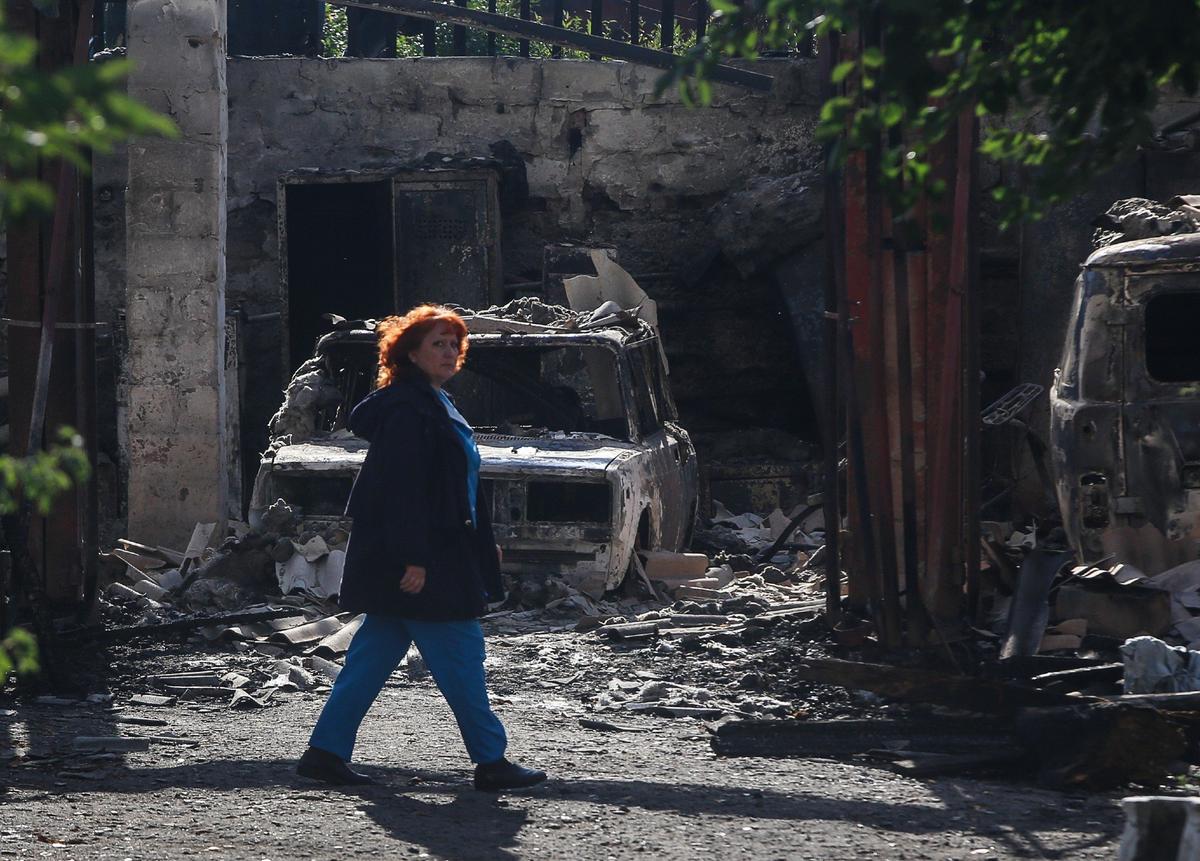
Popasna after shelling in 2014. Photo: EPA
“After the devastation, reconstruction began, followed by landscaping and other refurbishments. It didn’t stop in 2015 — although it very well could have. Until [the recent devastation], we saw it getting better and better with each successive year. The city was cleaned up — roads were resurfaced, pavements tiled, streetlights and benches put up, flowerbeds planted, trees were trimmed, and new cafes opened their doors,” says Marina, a local resident. For family reasons, she moved to western Ukraine a few months before the war began.
Despite the relatively calm situation in the city since 2015, the proximity to the occupied territories made Popasna a stronghold for the Ukrainian army. The city was well fortified, as everyone understood that Russia’s aggression could continue.
“Popasna has been fortified continuously — for eight years straight. This is our land, our Ukrainian military was stationed here. During that time, the military got closer to the civilians, and we lived shoulder to shoulder. They came for children's holidays and we held joint sporting events,” Khanatov said.
The experience of living on the doorstep of the hostilities and the constant presence of the military may have forced the residents of Popasna to pack their suitcases and flee from the front lines later than others. For them, the turning point that forced most to leave the city came only three weeks after the full-scale Russian invasion of Ukraine.
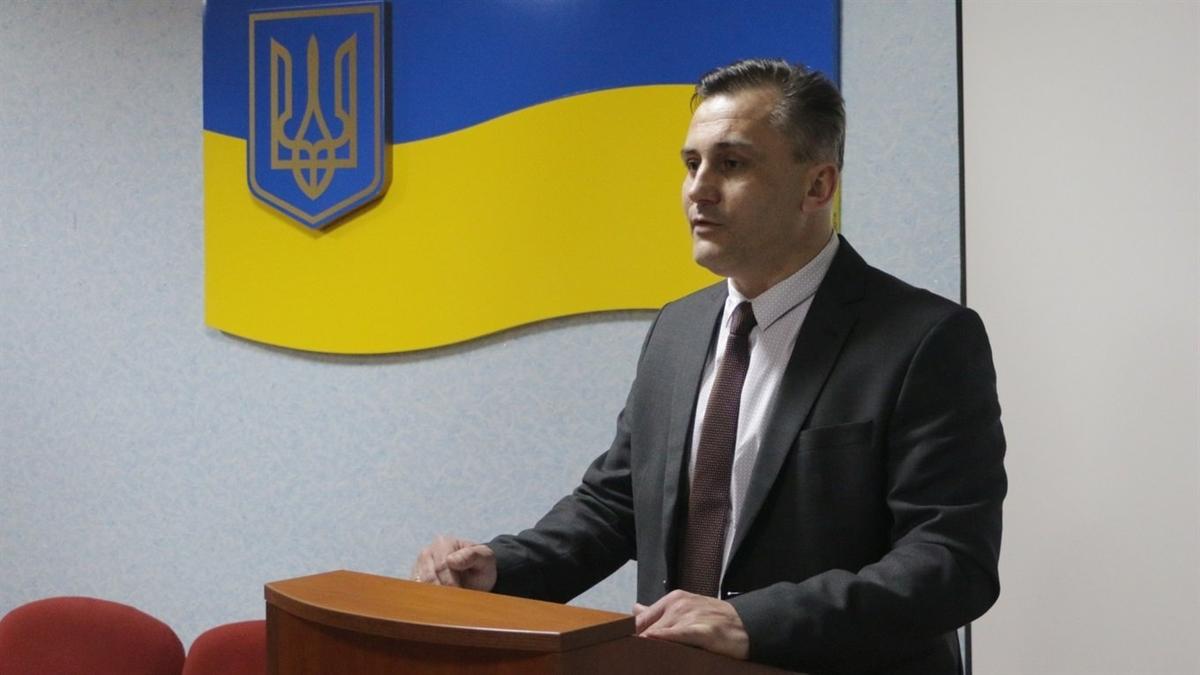
Head of Popasna’s military-civil administration Nikolai Khanatov. Photo: Попасна.City
The Russian Air Force vs. five-story buildings
“Nothing happened here [in Popasna] until March 2, although we knew that there was a lot of advanced Russian equipment in occupied Pervomaysk only seven kilometres away from us. Before the beginning of March, we had nothing at all — not a single shot fired. At the time we thought that Russia wanted to take over Kyiv and the central government, and then seize the rest of the territories by installing leaders of their own. But when they realised that [their original plan] didn't work, they started shelling Popasna,” Khanatov reasoned.
The first strikes on the city occurred on March 2. Around that time, the first local resident, a Russian-speaking man with several small children, was killed. Each day thereafter, the attacks and shelling grew more intense. By mid-March, the Russian army was still unable to gain control of the city, and air power was deployed.
“They probably hoped to get into the city faster, but they couldn't. Had it not been for Russian aviation, of course, they would not have entered Popasna at all. But the aviation started dropping bombs on houses. Five- and nine-storey buildings collapsed completely. Our citizens and the Ukrainian fighters who were defending us were dying in them,” says Khanatov.
Organised evacuation from Popasna began in mid-March.
At the same time, people were in no hurry to leave. For many, the memories of 2015 were still fresh — they hoped that this time, too, “they would shoot a little, and that would be all.”
“We never thought that such a thing could happen to our beloved town. The old-timers even refused to leave until last, until we almost scraped them out of there. We couldn't believe that it would turn out this way,” Marina recalls.
On March 2 and 3, before the fighting intensified, a direct train from Popasna to Kyiv kept running — but the locals hardly used it. According to Khanatov, the train came empty and took aboard 10 people at most.
“My colleagues and I told the residents that there was a train — that they could leave. What was the point of pushing buses through? This train would arrive at 10 a.m. and stay [at the station] until 7 p.m. Of a city with 20,000 people, only 10 decided to board. Sometimes people would take the same train back in 5-7 days when nothing had happened,” says Nikolai Khanatov.
A few days after shelling intensified, the railroad tracks to Popasna were hit, and the train began stopping in a neighbouring town six miles away. Popasna’s administration and volunteers used school buses to take people there — until the trains stopped running altogether. A bus route was then established to Bakhmut in the Donetsk region — the city authorities brought in humanitarian aid, and people shuttled back on the return trip.
“Then the horror began — a lot of killed civilians were just lying in the street. We got a private funeral company involved to help. In the process, sometimes the ritual service would go after the dead, and evacuate people who were alive,” Hanatov recalls.
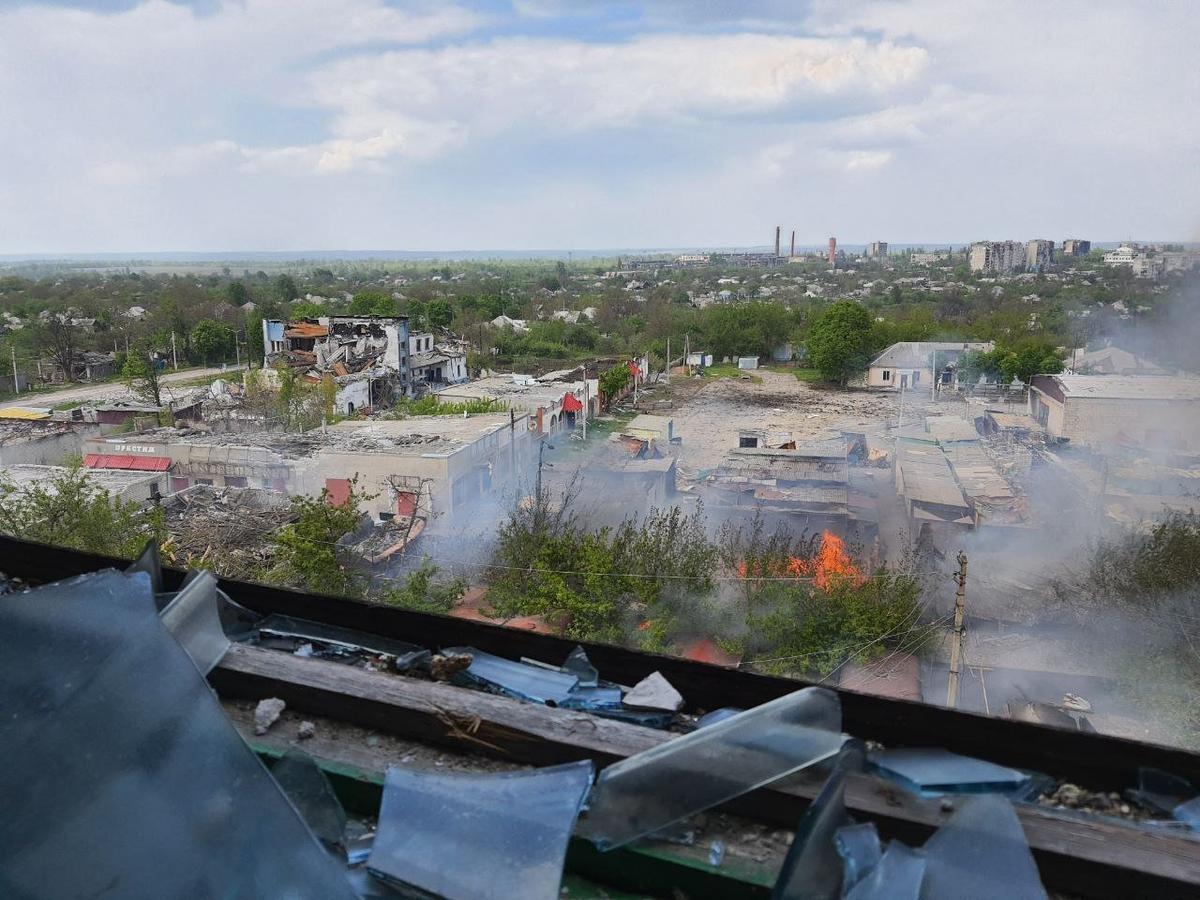
Popasna. Photo: Luhansk Information Center
Elena, a Popasna resident, left the city on March 14, taking an evacuation bus to Slavyansk. "No one was going to my neighbourhood anymore by that time. On March 10, I walked through the shelling to the opposite end of town to my relatives' house with two bags — one containing all my documents and the other containing a minimum of belongings. On the 13th I found out that my neighbourhood was already occupied, and on the 14th I miraculously managed to leave the city, — she recalls. “Then we were in Lviv, Poland and Germany. The whole route was like a dream. There were trains, lots of trains, people, people, and more people. I didn’t pay a dime anywhere — volunteers helped those who needed help along the way. I just didn't pay attention to the difficulties of the journey. It was heaven compared to the place that I had left.”
The battle for Popasna lasted a little over two months — eventually the Ukrainian army had to retreat. On May 8, Chechen President Ramzan Kadyrov announced that Russian forces had gained full control over the city. The withdrawal of Ukrainian troops was also confirmed by the head of the Luhansk military administration, Sergey Gaidai. He said that the Ukrainian Armed Forces had taken “stronger positions, which they had prepared in advance”.
“What was Popasna ‘liberated’ from?”
One of the main theses of the Russian invasion of Ukraine was the “liberation” of the Russian-speaking population from “oppression” by the current regime. The residents of Popasna, who also came to liberate, destroying much of the town along the way, did not talk about the oppression, although they did communicate with me in Russian.
"The Russians came to our land with war, and I quote, 'to liberate the Russian-speaking population.' That’s ridiculous — no one here oppressed anyone and didn’t impose the Ukrainian language [on anybody]. Documents were written, as in any country, in the state language, so there is nothing strange about that.”
“What was Popasna “liberated” from? From a stable, prosperous life? From housing, property, personal transport — everything," Elena explains.
Elena, born and raised in Popasna, worked as a nurse, worked at the city's central district hospital before the invasion: "When the Russians destroyed my town, I had to go to Germany to earn money for housing. I also work as a nurse here.”
Nikolai Khanatov, head of the local government administration, also had little to say about the “harassment” of Russian speakers in Popasna. Moreover — Khanatov is only half Ukrainian, as his father is from Popasna, while his mother is a Muscovite. Khanatov was born and raised in Moscow, which didn’t prevent him from moving to Ukraine and starting a new life there.
“My mother still doesn‘t speak Ukrainian — she understands it, but she can’t speak it. She came to Popasna many years ago with nothing at all. She created a business here — her own sewing factory — along with many other things. She always went to the tax office on her own, even though she couldn’t speak Ukrainian. She wasn’t discriminated against, and faced no prejudice or disadvantage,” says Khanatov.
Khanatov has worked in local government for more than 15 years, and his background has never been an issue. “I want to say, before 2014 objectively we all — Ukrainians in Popasna — considered Russia as an older brother. It’s a powerful state, the former capital of our Soviet Union. In general, there was a good attitude. I even know many officials that admired Putin. Now, of course, they hate him, but back then they looked up to him,” he recalls.
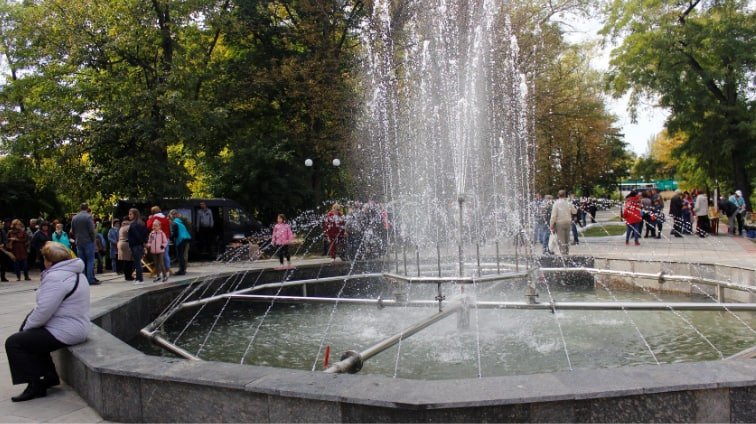
Popasna before destruction. Photo: svoi.city
The “waiters”
According to various sources, between 100 to 500 people remain in Popasna — people who couldn’t leave for health reasons or those who hope for support and help from Russia.
“All that’s left are the ‘waiters’. These are the people who were waiting for the ‘Russian world’, who remember cheap salami [in the Soviet Union] and say the ice cream tasted better when they were kids. They don't care that there are hundreds of kinds of sausage and ice cream now. ‘Waiters’ get rations from the occupiers and are happy about it. There’s no light, gas, water, or communication in the city. It’s better for them to get a piece of bread and a can of stew, like rations in prison. But these people are used to being slaves, they have a slave mentality, they need a master, they don't have their own brains, they just repeat the phrases they've memorised over and over," says nurse Elena.
The remaining people live in the city, where there are no houses left. Russian troops have destroyed all communications in Popasna. “One militiaman wrote to me: ‘Don’t stop us from living in our Popasna. These people are just mentally ill, it is impossible to live there, it is even impossible to stay there — shell craters, stretch marks, unexploded shells and corpses, corpses, corpses… They wrote that when summer started — there was an impossible deadly smell in the city. There was no one to bury them, and many of those who had died in their yards and apartments were still lying there,” says Yelena.
Staying in the city and adhering to a different rhetoric is now impossible, believes Andrei Degtyarenko, editor-in-chief of Realna Gazeta and a native of Luhansk. “Propaganda in the occupied territories is disconnected from reality. We know that people discuss completely different things at home, in their kitchens. They know that almost all the men are taken to the front line.
The mortality rate is enormous. Cemeteries are growing, there are no jobs, there’s no life even where you rarely hear the sound of explosions. Where this war machine goes, there’s simply no life left — in the literal sense.
People are killed, all the buildings are destroyed, and death creeps in. Those who remain in the occupied territories understand that they have to say what is required, otherwise they will be dealt with very harshly. That’s all.”
There’s no city, but there’s hope
Despite the destruction, Elena would like to return to Ukraine once the occupation is over, although even she doubts that her hometown can be rebuilt.
“Even though I have relatives living abroad, I never wanted to live anywhere but Popasna. I was happy with everything, I had everything there. Many did. Now I read on social networks that [locals] want to go home to see what has happened and what remains. What is there to see? Nobody has anything. Everything is broken, looted. What they couldn‘t take away was broken and cut up. It’s not even the material things that are more pitiable — it‘s the memory. There were photos, little things that reminded me of my childhood and various moments of my life. Now there’s nothing — just a bag of things…”
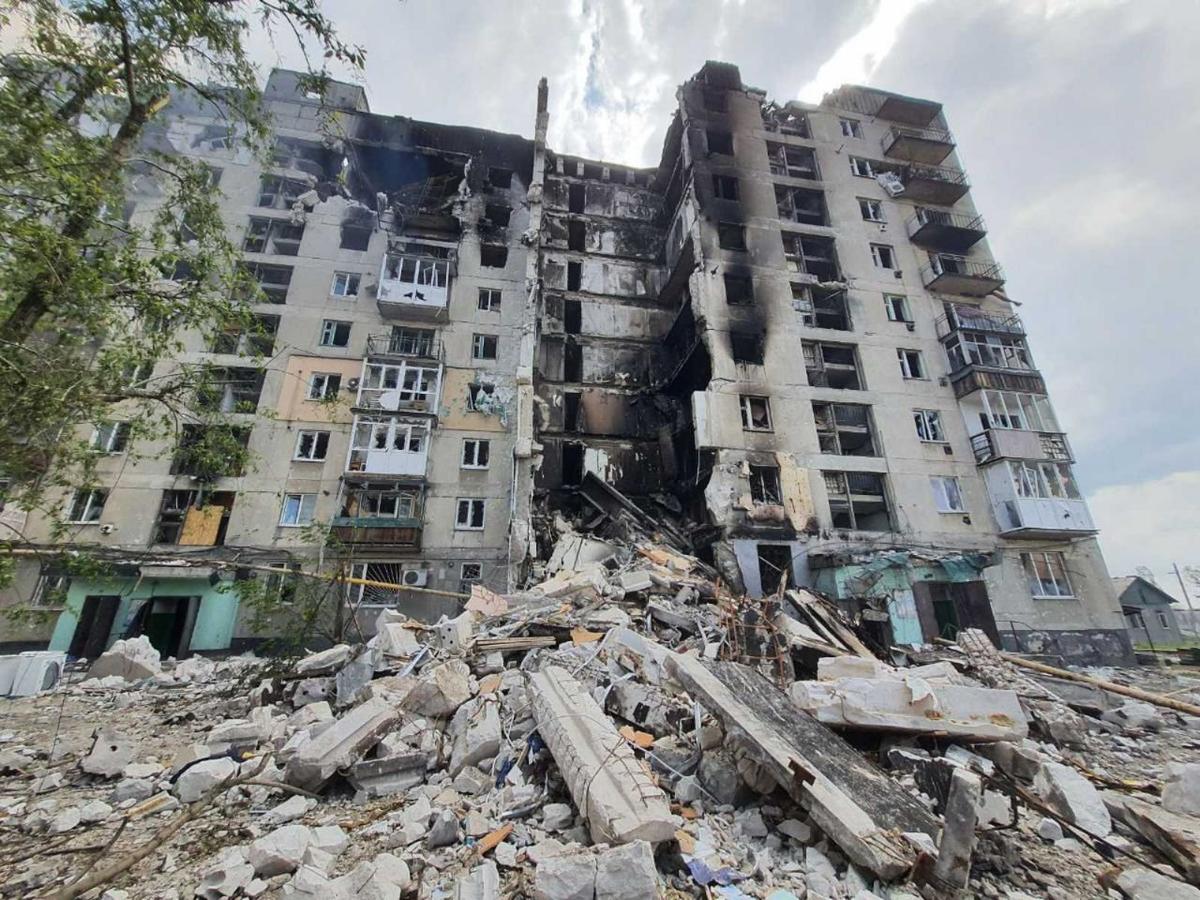
Photo: telegram / popasnaya2022
The head of the local administration doesn’t share Elena's pessimism. Nikolai Khanatov is sure that the 96% figure is an exaggeration, and the city has all the resources to restore itself to normality after the withdrawal of Russian troops. “If the [Russian army leaves], we’ll be in Popasna the next day. We have wells drilled, we’ll immediately hook up generators, and we’ll instantly have water in every neighbourhood,” he explains.
Oleg Popenko, a Ukrainian expert on housing and communal services, is convinced that in any destroyed city, including Popasna, the first thing to do is restore electricity. “Without electricity, the city is dead,” Popenko says. The next step, in his opinion, is to analyse the damage and decide whether it’s possible to restore housing and other infrastructure.
“It all depends on how much need there is for this city to exist, how expensive it is to rebuild the logistics and power grids. Sometimes it may be easier to relocate the city but keep its historic name,” Popenko explains.
Journalist Degtyarenko is sure that Pasechnik's words have no weight in decision-making with regard to the “LPR.”
"The fact is that Pasechnik is not the subject of decision-making. There is only a tough decision from the Kremlin, and the local occupants are forced to obey.
As long as Popasna is under the control of the so-called “LPR,” the city is unlikely to be rebuilt, he believes: “I think that Pasechnik simply came to Popasna, saw the level of destruction and realised that there’s no money [to rebuild the city]. The Russian Federation won’t allocate the necessary amount of money — even during all those eight relatively peaceful years, most of the captured Donbas didn’t receive enough [development] money. On the contrary — mines were closed and factories were shut down. Pasechnik, knowing that, is well aware that nothing good awaits Popasna under the rule of the Russians and even under the nominal umbrella of the proxy power called ”LPR.”
Join us in rebuilding Novaya Gazeta Europe
The Russian government has banned independent media. We were forced to leave our country in order to keep doing our job, telling our readers about what is going on Russia, Ukraine and Europe.
We will continue fighting against warfare and dictatorship. We believe that freedom of speech is the most efficient antidote against tyranny. Support us financially to help us fight for peace and freedom.
By clicking the Support button, you agree to the processing of your personal data.
To cancel a regular donation, please write to [email protected]
